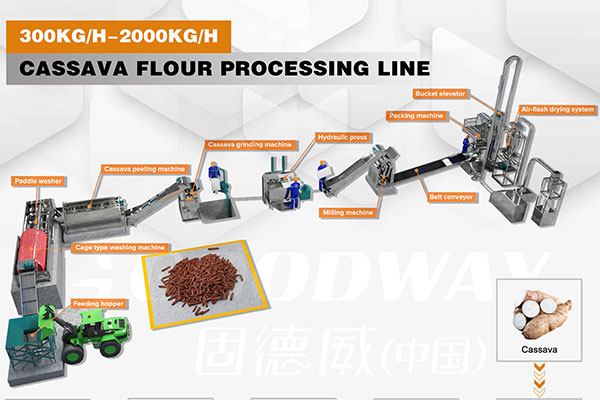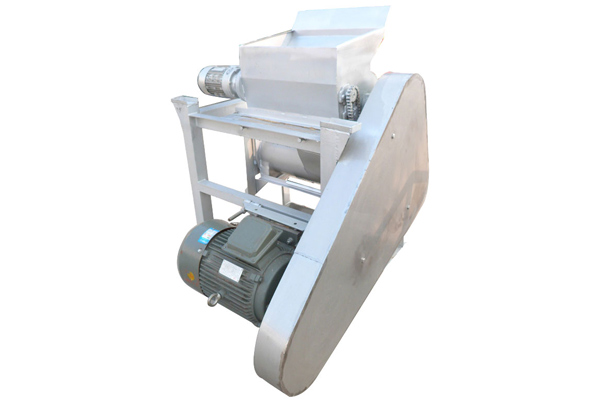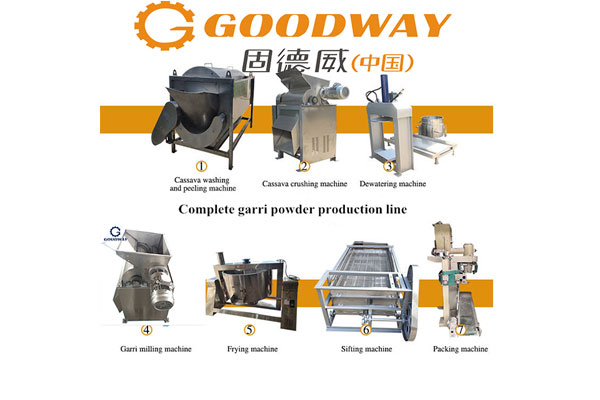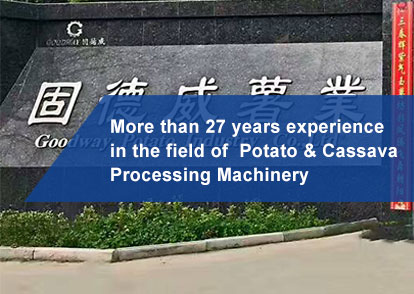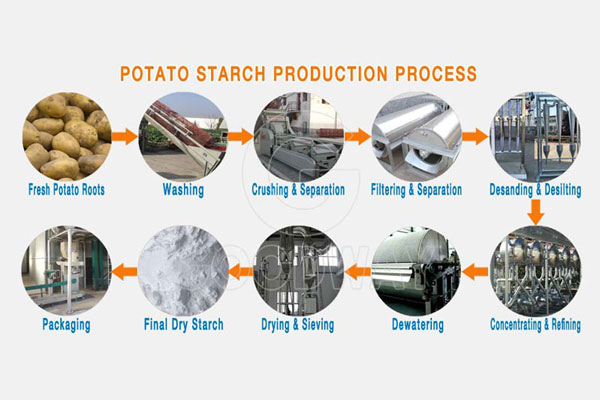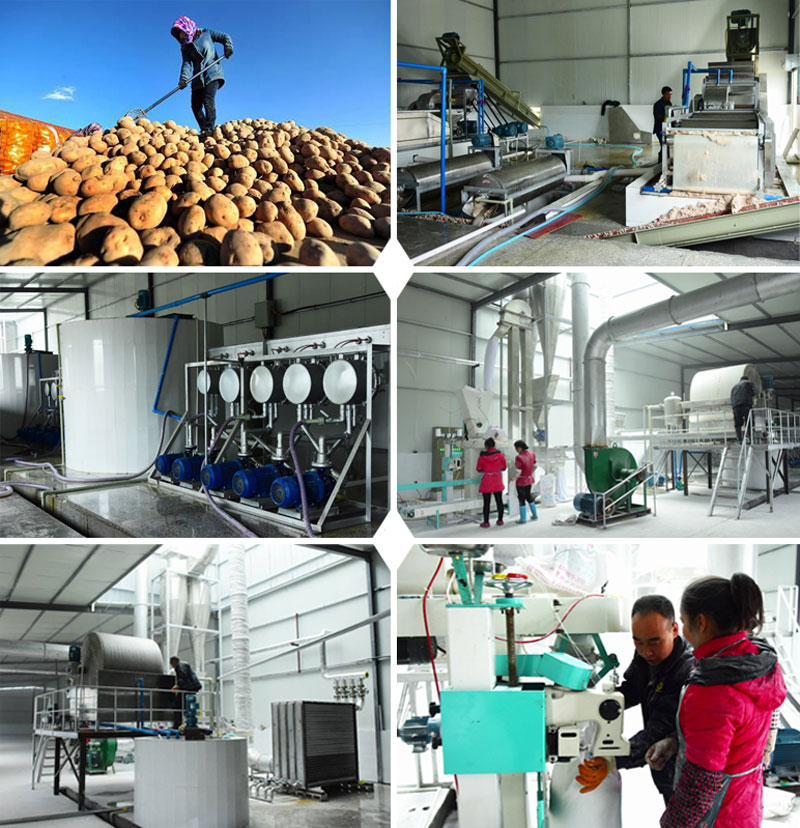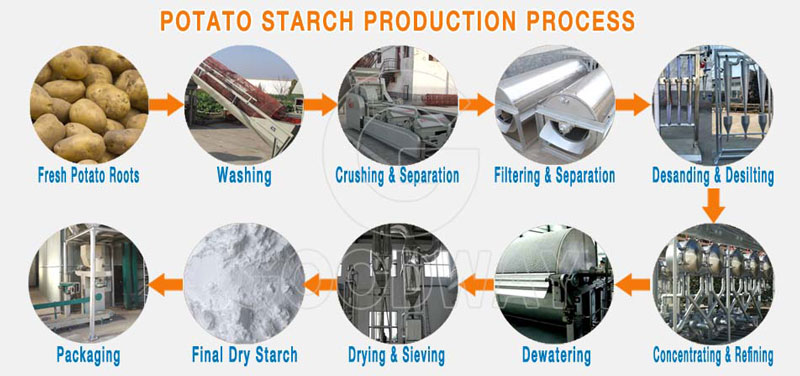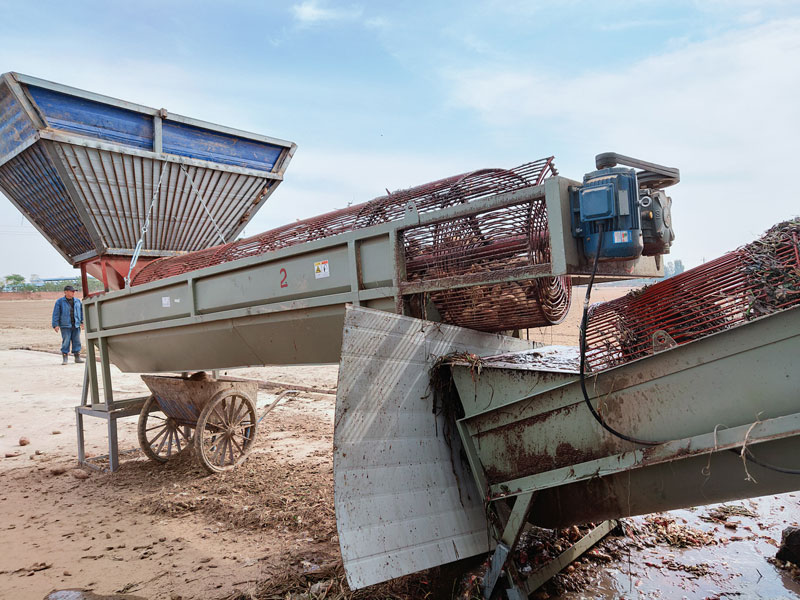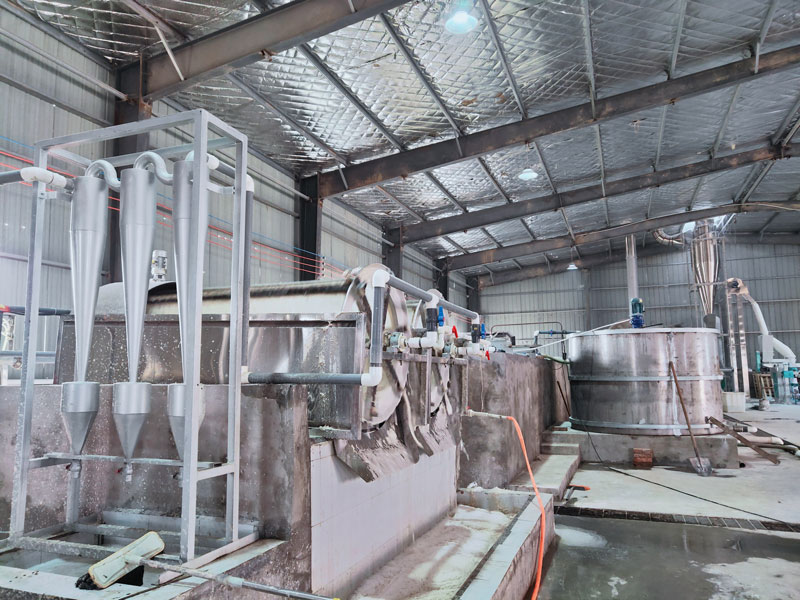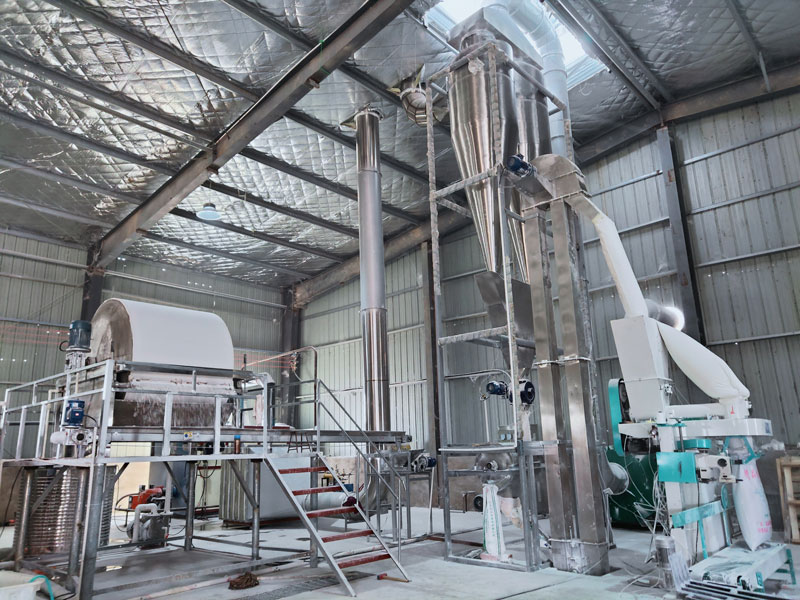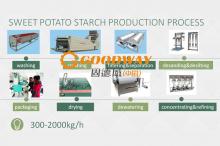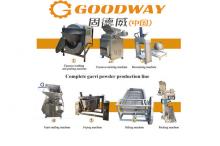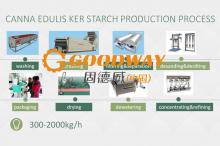In the field of starch processing, each person's processing conditions are different, and the types of processing equipment required are also diverse. According to the difference in capital investment, processing technology, and equipment configuration, they can be roughly divided into four types: simple, economic, practical, Standard type. The number of processing equipment, processing volume, and overall price are different for each type of configuration, which is suitable for investors of all levels to choose and use. Today, Goodway mainly explains the applicable objects, processing characteristics, equipment configuration, process steps, and processing capabilities of simple potato starch processing equipment.
Potato starch processing equipment
1.Applicable objects of simple potato starch processing equipment
It is mainly suitable for small and medium-scale potato starch processing using sweet potatoes, potatoes, cassava, kudzu root, plantain taro and other potatoes as raw materials. The simple potato starch processing equipment is small in number and the starch production process is simple. It is suitable for processing households who mainly process semi-finished wet starch. There is no starch cyclone station, dehydration and drying equipment, and precipitation tanks or launders are usually used. Hanging filter bags, outdoor drying and drying replace the functions of these types of equipment. Simple starch preparation technology is often combined with vermicelli processing.
2.Processing characteristics of simple potato starch making machine
Simple starch processing technology has low overall investment, low risk, low energy consumption, simple operation, and higher starch extraction rate. Compared with traditional manual preparation technology, simple mechanical processing can obtain higher quality with low capital investment. Starch, in order to obtain good economic benefits.
3. Equipment required for simple potato starch processing method
Raw material-quantitative conveyor cleaning machine-potato washing machine- squirrel cage washing machine-potato starch extraction machine-fine filter-desander-sedimentation tank or Launder-vacuum dehydrator (optional, this process is not configured)-potato starch airflash dryer (optional, this process is not configured)
4. Simple potato starch processing process
1. Washing section: The potato raw materials pass through multiple washing machines to effectively remove impurities such as soil, stones, stems and leaves, and the water consumption is about 2-3 times that of the raw materials.
2. Crushing and filtering section: After the raw materials are cleaned, a special potato starch machine can be fully pulverized to effectively increase the starch extraction rate; the filtering section mainly uses microfilters, fine filters, centrifugal screens, etc., and starch purification depends on desander Solve the problem of starch mouth and ensure the taste of starch.
3. Separation of sedimentation tank or launder: The simple potato starch processing technology takes the crushed and filtered starch slurry into a self-built sedimentation tank or launder for precipitation. This method generally takes a long time and does not undergo equipment oil powder separation. , So the starch slurry is yellowish in color, and its appearance and taste are inferior to that of fully machined starch.
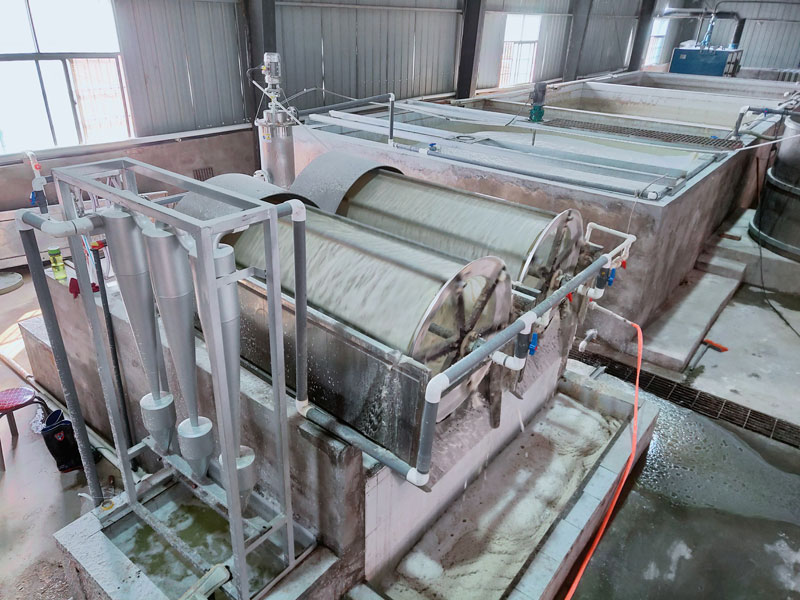
4. Dehydration and drying section: Simple potato starch processing does not have a dehydrator and starch drying equipment. Dewatering mainly depends on the hanging filter bag for natural hanging filtration to filter out the water inside, and then natural drying outside the user or drying room, drying room for final drying. However, the starch produced by this drying method has a high moisture content and is mostly granular powder. If stored improperly, starch will easily deteriorate and become moldy, so you need to pay attention to starch storage and transportation methods.
5. Processing capacity of simple potato starch equipment (processing raw material volume)
2-3 tons/hour, 3-4 tons/hour, 5-6 tons/hour, 8-10 tons/hour, 12 tons/hour, 15 tons/hour, 20 tons/hour, 30 tons/hour

 EN
EN
 fr
fr  es
es  it
it  pt
pt 